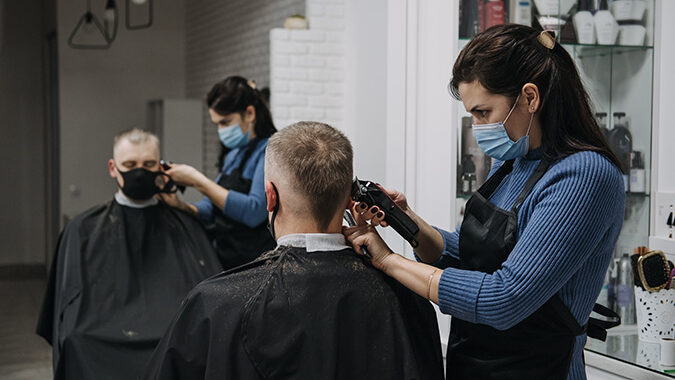NJBIA and the New Jersey Salon and Spa Alliance are asking the Legislature to support several proposals that would help the industry overcome the workforce and operational challenges it has faced during the COVID-19 pandemic so these embattled businesses can regain their financial footing in 2022.
NJBIA Director of Government Affairs Alexis Bailey said Tuesday salons and spas sustained major economic losses during the prolonged government-ordered shutdown early in the pandemic and they have remained stymied by state regulatory hurdles and an ongoing labor shortage.
In a letter to legislative leaders this week, Bailey outlined four proposals to address the industry’s workforce challenges: license reciprocity with neighboring states, temporary teaching permits for applicants awaiting their state examination, a work study program for cosmetology and hairstyling students, and a tax credit for salons and spas that provide hiring bonuses to attract new employees.
Bailey said that allowing license reciprocity would permit experienced industry professionals from neighboring states to work in New Jersey and expand the pool of potential employees. “There are many talented and experienced professionals that could fill the workforce gaps currently facing the industry, but they are barred from doing so without going through a lengthy state licensure process,” Bailey said.
Legislation has already been introduced (A-488/S-1137) to allow the State Board of Cosmetology and Hairstyling to issue temporary teaching permits, valid for 120 days, to applicants seeking teacher licenses while waiting for their state examinations to be scheduled. Bailey said this legislation, if passed, would help fill the existing teaching vacancies in cosmetology school programs.
A work-study program for cosmetology and hairstyling students would greatly benefit New Jersey salons and spas and foster an effective talent pipeline for the industry, Bailey said. “Many other states have apprenticeship or internship programs as a required or optional component of their licensure coursework,” Bailey said. “By allowing cosmetology and hairstyling students to participate in a similar work study program, the state can elevate training opportunities in the industry.”
A tax credit for salons, spas and cosmetology schools that provide hiring bonuses to new staff will help an industry that is struggling to attract and retain talent, Bailey said. “Tax credits will give these small businesses that may still be struggling financially a mechanism to strengthen their business and the state’s overall economy,” Bailey said.
NJBIA and the New Jersey Salon and Spa Alliance have also asked the State Division of Consumer Affairs for several regulatory solutions to help the salon and spa industry. Suggestions contained in a letter to the division this week included the expeditious development of regulations for mobile salons. This new law, supported by NJBIA and NJSSA, is scheduled to take effect in November and will for the first time allow mobile salons that come to customers, opening a new avenue of business operations for salons.
NJBIA has worked diligently to address concerns of the industry through the creation of the New Jersey Salon and Spa Alliance with industry professionals Christine Modica, James Alba and Jyoti Wadhia at the onset of the pandemic. NJBIA and NJSSA look forward to continuing working together to promote this proactive agenda in the new legislative session.




